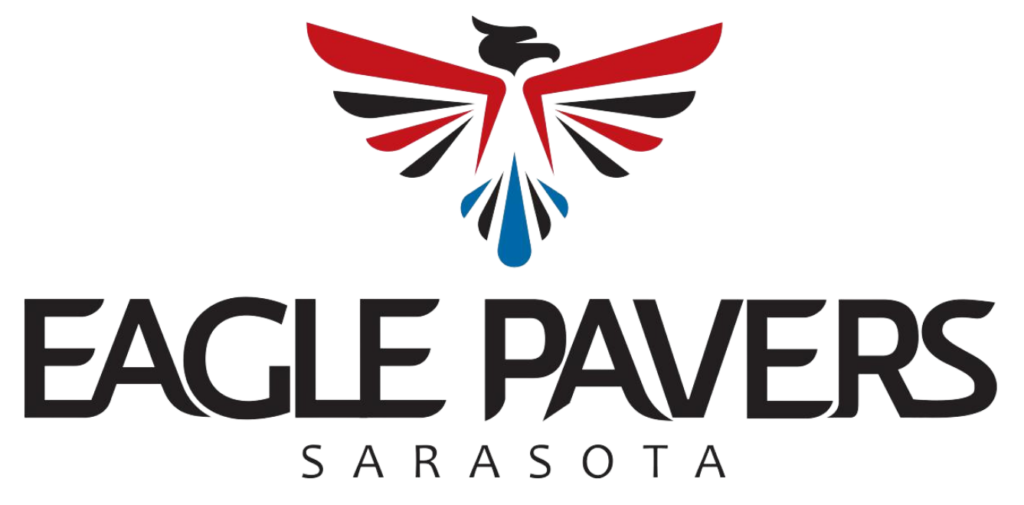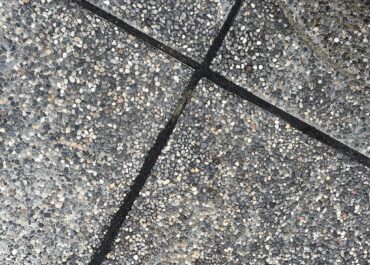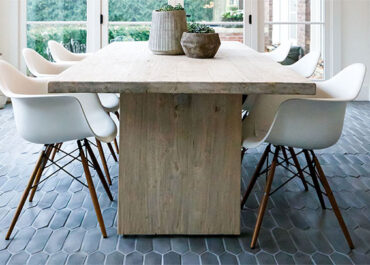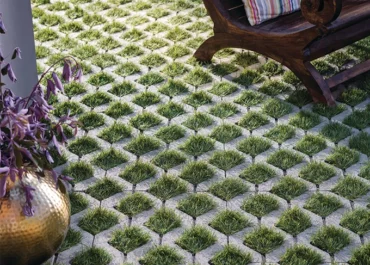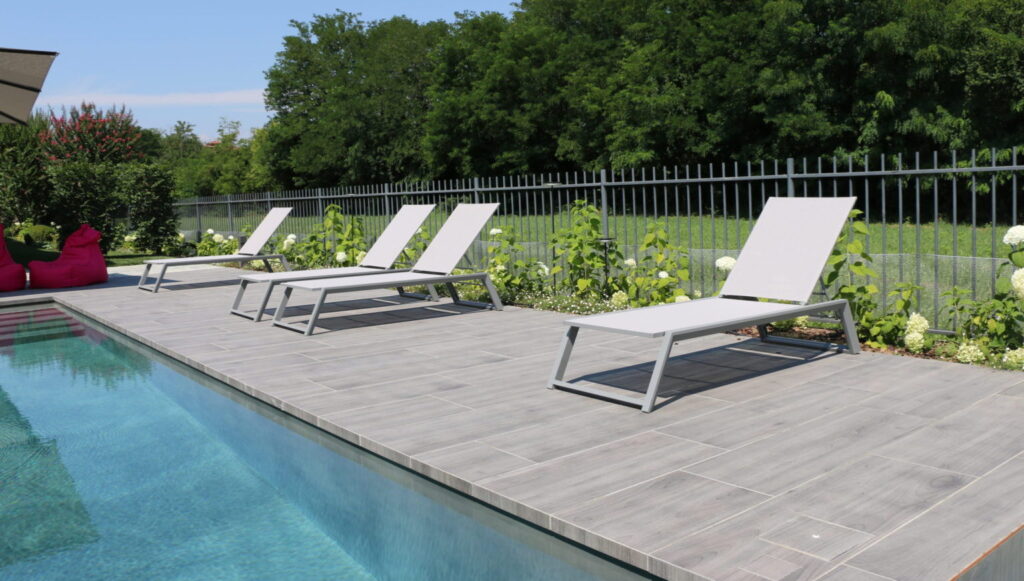
Porcelain pavers have been taking the hardscape industry by assault. They are quickly becoming the go-to choice for many homeowners due to their high durability and easy maintenance. But are outdoor porcelain pavers non-slippery?
That is an important question to anyone who plans to make an installation on a poolside, for example, but also for people with children or elderly at home. Slipping is no joke and can cause dangerous accidents, so it is best to avoid slippery pavers whenever it’s possible.
So let’s talk about the slippery ratio of porcelain pavers, expand on why they are currently one of the best paver options available, and then give you some maintenance tips to better take care of them.
Are Porcelain Pavers Non-Slippery?
Porcelain pavers come in two variations of thickness: standard size (between 8 mm and 10 mm thick) and 2 cm, or 20 mm, which are the ones who are used outdoors.
Due to the precision of their manufacturing process, which we will talk about later, porcelain pavers can be made to have different kinds of texture. They can be perfectly smooth, or have a surface designed to be non-slippery. That goes for both the standard thickness and the 2 cm one.
So the answer is yes, outdoor porcelain pavers are, in fact, non-slippery.
When choosing the right texture, porcelain pavers can have a high anti-slip rate. What also contributes this non-slippery characteristic is the fact that porcelain pavers have a non-porous surface.
Being non-porous have important consequences when it comes to the durability and maintenance of porcelain pavers. It all starts during the manufacturing process, which we will talk about next.
How are Porcelain Pavers Made?
Porcelain pavers are created using a unique combination of materials, like feldspar, kaolin and quartzitic sand. These materials are mixed with high quality clay and water to form a kind of “mud”. This mud is then left to dry.
It is at this point the mud is pigmented and worked on to form the proper patterns. It is that this point that the non-slippery texture is applied.
Once that is done, the material is cooked under extreme pressure and high temperatures, as high as 1,200 degrees Celsius. And then something quite unique happens.
The materials on the mixture, especially the kaolin, undergo a vitrification process. This process essentially gives a glass-like quality to porcelain, which makes it extremely resistant and gives it its non-porosity quality.
The combination of extreme resistance, non-porosity capacity and versatility in design is what makes porcelain pavers a top tier choice of paver in the modern hardscape industry.
Maintenance of Porcelain Pavers
Since they are non-porous, porcelain is impervious to stains that would otherwise damage another types of pavers. In fact, pavers need to be sealed to be protected. Sealing is where a good part of maintenance investments come from when talking about the maintenance of pavers.
However, since porcelain pavers are naturally non-slippery, they do not need to be sealed. That alone makes up for the higher cost of porcelain upfront, around $7- $9 per square foot, when compared to most traditional choices, like concrete. Long term wise, porcelain more that pays for itself.
It is not only in the sealing aspect that the non-porosity of porcelain pavers plays out. It also influences on the day-to-day maintenance of it, which is extremely easy.
To clean porcelain, the only thing you’ll need is a solution of warm water and any pH-neutral cleaning of your choice. It is recommended that you sweep your pavers often, keeping it free from dust, leaves and any other kind of debris. As for moping it, it will depend on the activity around your pavers.
If there’s a lot of foot and vehicular traffic around it, quickly moping at the end of the day with warm water to remove the heavy dirt is a good idea. On those cases, moping with a cleaning solution every week is recommended.
However, if there’s not a lot of activity, you can quickly mop with warm water once a week, and perform a deeper cleaning using products once a month.
Installation of Outdoor Porcelain Pavers
Porcelain paver are extremely versatile on the installation aspect as well. They can be installed both on a flexible base or a concrete base. If they are big enough, they are even resistant enough to be used as stepping stones directly on top of grass.
They are excellent choices to be used by poolside installations. Their non-porosity protects them against the chemicals that are normally used to keep pool water clean, and the non-slippery texture makes it safe to walked around.
However, working on a DIY capacity with outdoor pavers can be tricky without proper help, since they are very heavy. It is highly recommended that you hire professionals to help you. Still, this article can help you with a guide if you feel daring.
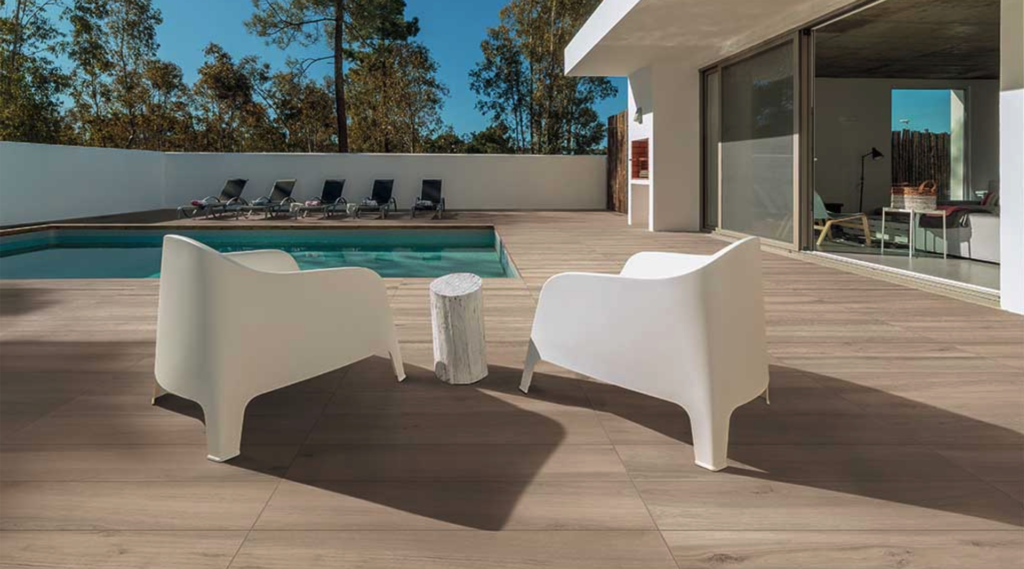
Acquiring Porcelain Pavers
Hopefully now you understand what makes porcelain pavers such a good choice and why is it becoming a prime choice for many homeowners. We also hope your doubts about outdoor porcelain pavers being non-slippery have been satisfied.
If you’re considering acquiring porcelain pavers, we highly recommend you find a contractor through the Belgard website. We here at Eagle Pavers have been working with Belgard porcelain pavers for 14 years, with a high satisfaction rate from our customers.
In fact, if you still have nay doubts or are around the Sarasota and Manatee counties, why not give us a call to help you with your installation?
You can call us anytime at +1 941-210-4192 or email us at sales@eaglepavers.us. We would be happy to hear from you and help you with any paver supply need you might have.
